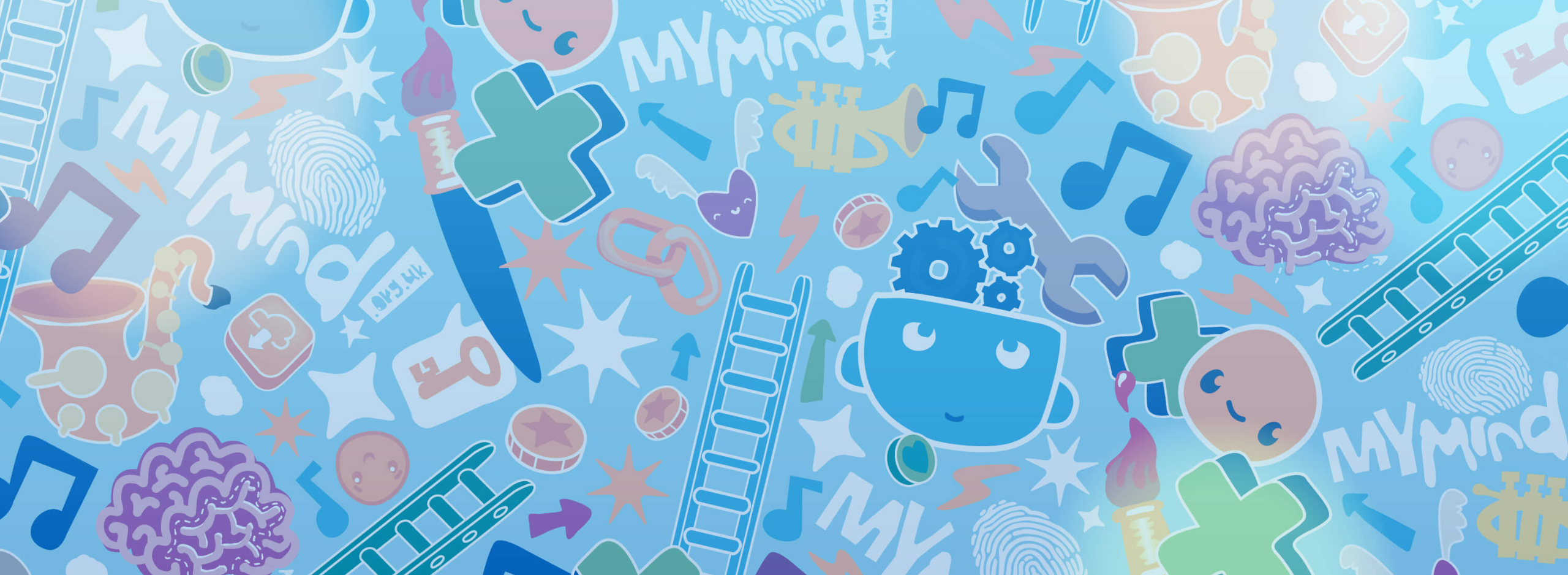If you are looking at this website then it’s possible you have some worries about your relationship with food and how you feel about your body. It’s good that you are taking a look and we hope that the information below will help you make a decision about whether to seek more help.
We know from research that the earlier a young person gets help for their eating disorder then there is a better chance of being able to make a full recovery. It is very brave to admit you are concerned and ask for help but you will probably find in time that you can look back and see it was the best decision you made. We know that the longer a young person has an eating disorder the greater risk there is of it having a very negative impact on all areas of their life.
Sometimes people can be discouraged from recognising they need help by myths that they hear about eating disorders. The following Myths and Facts have been developed and provided by Beat, the national eating disorders charity:
| MYTH | FACT |
| Eating disorders are just a fad diet gone too far. |
Eating disorders are serious, mental illnesses which require prompt, appropriate treatment. Anorexia is the illness where people restrict the food they eat to a harmful extent. People with bulimia are rarely underweight. |
| Eating disorders only affect impressionable girls from privileged backgrounds. |
Eating disorders can affect people of any age, gender, culture, ethnicity or background. Girls and young women aged 12-20 are most at risk. Up to 25 per cent of cases could be boys and men |
| Eating disorders are a lifestyle choice. |
People with eating disorders do not choose to be ill, and they are not trying to seek attention. They can find it very difficult to believe that they are ill, and equally hard to acknowledge it once they do know. This is one of the most challenging aspects of how the illness affects someone’s thinking and behaviour. |
| Eating disorders are only a modern phenomenon. |
Eating disorders were first observed and recorded in the 1680s and have been known throughout history. The pressures and pace of modern life and the spread of a global westernised culture play a part in any reported increase. |
| You can tell just by looking at someone if they have an eating disorder. |
Eating disorders are mental illnesses – so it is someone’s thoughts, feelings and emotions that are involved. Eating disorders come in all shapes and sizes and not everyone affected will be very underweight or even ill-looking. |
| Eating disorders are caused by bad parents. |
Parents don’t cause eating disorders. The causes are complex and many factors are involved. Parents and families can play a vital part in helping their loved ones beat an eating disorder, and the more they learn to understand the condition, the more they can help. |
| People with eating disorders are just trying to look think like their celebrity idols. |
People with eating disorders typically have very low self esteem and feel worthless. They are more likely to wish to disappear and not be noticed than want to draw attention to themselves |
| No one ever really recovers from an eating disorder - you've got it for life. |
Eating disorders are treatable and full recovery is possible. There can be serious long- term consequences to physical health if the conditions are not treated quickly. Some people do develop a long- term or recurrent eating disorder, but treatment is improving all the time. |
We hope that the above has busted any myths you may heard about eating disorders and will encourage you to know that if you seek help people will understand your concerns and know how to help you.
Below are some of the signs that could be a warning that you have an eating disorder:
- Are you waking up in the morning and worrying about eating?
- Eating a lot less than you used to – this can be knowing you have made a deliberate decision to eat less or you just find you are feeling increasingly scared of eating?
- Do you spend more and more time checking your body or comparing yourself negatively to others?
- Have you noticed that you now have to eat using a certain plate or bowls and have begun to weigh food or check calories?It can be hard for people to admit but are you sometimes taking laxatives and/or making yourself sick after eating which can be a way of coping with fear and shame about eating?
- Are you getting into a ‘Famine or Feast’ way of eating?– waking up determined to eat less on some days and then finding after you have not eaten for long periods of time that when you do eat you feel like you can’t stop .
- Have you noticed yourself looking on websites to check calories and getting ideas for how to lose weight?
The Scoff Questionnaire
The SCOFF questionnaire, developed by John Morgan at Leeds Partnership NHS Foundation Trust, uses five simple questions and has been found to be valid in identifying eating disorders. If you find that you answer yes to two of the questions then this would strongly suggest you need to seek some help.
- Do you ever make yourself sick because you feel uncomfortably full?
- Do you worry you have lost control over how much you eat?
- Have you recently lost more than one stone in a three month period?
- Do you believe yourself to be fat when others say you are too thin?
- Would you say that food dominates your life?
The vicious cycle of an Eating Disorder
Do you notice any thoughts, emotions or physical symptoms when you do try to eat? Below is a simple diagram to understand the vicious cycle that people can become stuck in when they are developing or have an eating disorder:
It is a myth to say that boys do not develop eating disorders. They Do!
Despite the stereotype that eating disorders only occur in women, about one in three people struggling with an eating disorder is male, and some eating disordered behaviors (including binge eating, purging, laxative abuse, and fasting for weight loss) are nearly as common among men as they are among women.
Boys and body image
There are numerous studies on male body image, and results vary widely. Many men have misconceived notions about their weight and physique, particularly the importance of muscularity. Findings include:
- Most males would like to be lean and muscular, which typically represents the “ideal” male body type. Exposure to unattainable images in the media leads to male body dissatisfaction.
- The sexual objectification of men and internalization of media images predicts drive for muscularity.
- The desire for increased musculature is not uncommon, and it crosses age groups. 25% of normal weight males perceive themselves to be underweight and 90% of teenage boys exercised with the goal of bulking up.
- Muscle dysmorphia, a subtype of body dysmorphic disorder, is an emerging condition that primarily affects male bodybuilders. Such individuals obsess about being adequately muscular. Compulsions include spending many hours in the gym, squandering excessive amounts of money on supplements, abnormal eating patterns, or use of steroids
- Many men who have celebrity status have come forward to say that they have had an eating disorder in the past - there should NEVER be a stigma to having an eating disorder.
- An eating disorder has the highest mortality rate of any other mental health illness and it has NO barriers when it comes to age or gender!
- Boys - although they do not seek help readily – have every right to a service and must not be told this is a phase they are going through.
If you have read this and feel that you need some more help then the first step is letting someone know. This is really important as, if you have an eating disorder, you will need lots of understanding and support to help you recover.
Do you have a teacher, family friend or parents you can talk to? Do you have a good friend you can let know?
If you have lost weight or are using laxatives or making yourself sick after meals it is important to make an appointment to see your Doctor. This is because any of the above could lead to serious physical health concerns and you Dr will need to just check you are Ok by completing some investigations, such as checking your weight and height, heart and blood pressure. They may also take some blood to make sure that all your blood levels are OK as sometimes this is the only way to check whether someone has health problems.
Once you have told someone it can be a real relief and the first step in beginning to recover. You could show them this site and look together at the other sections that are for family and friends, plus how to get help near to where you live.
Below is a list of other resources and internet site that can provide more information and support

